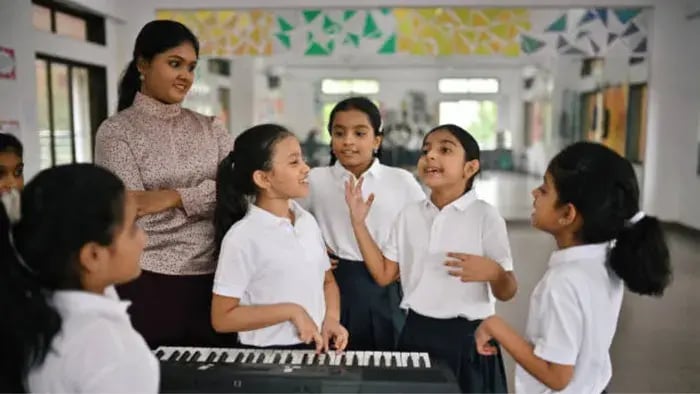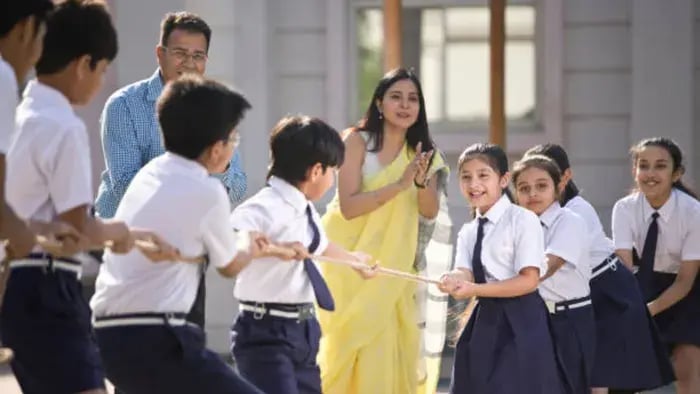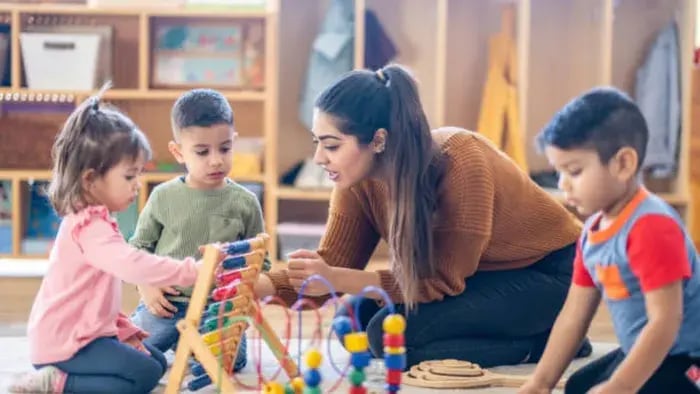- Role-Play Adventures
- Circle Time Story Game
- Human Knot
- Balloon Balance Relay
- Guess Who Am I?
- Cooperative Building Blocks
- Freeze Dance
- Scavenger Hunt Teams
- Group Art Project
Introduction

Making friends, taking turns, and learning how to work with others are some of the biggest lessons of childhood, and games are one of the easiest ways to teach them. When kids play together, whether it’s building something as a team or competing in a fun challenge, they naturally pick up social skills like cooperation, patience, and empathy.
Play creates the perfect space for children to practice listening, sharing ideas, and understanding different points of view. A simple group activity indoors or a lively outdoor game can get kids talking, planning, and solving problems as a team. These experiences help them balance being independent with knowing how to collaborate, skills that matter both in school and beyond.
The ups and downs of play, winning, losing, or working through disagreements, also build resilience. Kids learn how to manage emotions, celebrate others’ successes, and keep trying with a positive spirit. Along the way, shared laughter and teamwork create stronger bonds between siblings and friends. With the right games and gentle guidance, children grow into confident, kind, and socially aware individuals.
9 Fun Games That Help To Shape Social Skills In Kids

Social skills grow naturally when children interact, play, and share experiences. Games are an excellent way to encourage this learning because they create situations where kids must listen, cooperate, and respect others. By engaging in fun and interactive activities, children develop teamwork, patience, and communication in ways that feel effortless and enjoyable.
From outdoor challenges to simple indoor games, each activity teaches valuable lessons about friendship, responsibility, and empathy. Through these shared experiences, children discover how to work together, celebrate successes, and handle setbacks with confidence.
Role-Play Adventures
In this game, kids take on different roles, like a shopkeeper, teacher, or doctor, and act out short scenarios. According to a study published in Healthcare (Basel) in 2020, this activity builds empathy, as children learn to step into someone else’s shoes. It also improves communication, problem-solving, and respect for different perspectives.
Circle Time Story Game
Children sit in a circle, and one begins a story with a single sentence. Each child adds a new line until the story is complete. According to UNICEF, this game encourages listening, creativity, and cooperation. It shows children how their ideas can blend with others’ contributions to create something fun together.
Human Knot
Kids stand in a circle, hold random hands across the group, and then try to untangle themselves without letting go. Research conducted by JMIR Serious Games. 2021 shows that the game promotes teamwork, patience, and clear communication. It also shows children the importance of working together to solve problems.
Balloon Balance Relay
Teams balance balloons while racing or passing them along without dropping. A study published in Behav Sci (Basel). 2023 shows that this game teaches cooperation, coordination, and cheering each other on. It highlights how every child’s effort contributes to the group’s success.
Guess Who Am I?
A child wears a card on their forehead with a name or object written on it. Others give clues until the child guesses correctly. As per a study published in Neurosci Biobehav Rev. 2016, this game promotes communication, listening, and patience, while also encouraging children to think from another’s point of view.
Cooperative Building Blocks
Instead of building alone, kids work in groups to create a tower, bridge, or house with blocks or LEGO. According to a study published in Indian J Community Med. 2014, this activity develops planning, negotiation, and collaboration as they decide who does what. It shows that shared effort leads to shared success.
Freeze Dance
Kids dance while the music plays and freeze when it stops. While fun, research conducted by Glob J Health Sci. 2013 highlights that it also teaches self-control, patience, and awareness of others. In group play, it promotes laughter and strengthens bonds among children.
Scavenger Hunt Teams
Children search for hidden items using clues, working in pairs or groups. Research conducted by Children (Basel). 2024 shows that this game encourages cooperation, sharing responsibilities, and problem-solving. It also improves observation skills while teaching the importance of listening to teammates.
Group Art Project
Children work together on a single drawing, poster, or collage. Each child contributes their part while respecting others’ ideas. According to the Centre for Good Governance (CGG), this game fosters creativity, teamwork, and appreciation of different talents.
Conclusion

Social skills grow best in playful, supportive environments. Games like role-play, scavenger hunts, and group art projects allow children to practice empathy, communication, and teamwork in ways that feel natural. They learn to listen, share, cooperate, and celebrate each other’s contributions. By encouraging these activities, you give your child the foundation for meaningful friendships and stronger confidence in social situations.
Her love for storytelling began with reading her grandfather’s speeches, where Tarishi saw the power of words in creating lasting memories. Combining her passions for food and writing, she has turned her life into a fulfilling path of sharing stories that celebrate flavours and how food brings communities together.
The views expressed are that of the expert alone.
The information provided in this content is for informational purposes only and should not be considered a substitute for professional medical advice, diagnosis, or treatment. Always seek the advice of your physician or another qualified healthcare provider before making any significant changes to your diet, exercise, or medication routines. This is a sponsored article.
References
https://www.cgg.gov.in/wp-content/uploads/2017/07/Creativity.pdf
https://pmc.ncbi.nlm.nih.gov/articles/PMC11592547/
https://pmc.ncbi.nlm.nih.gov/articles/PMC4825459/
https://pmc.ncbi.nlm.nih.gov/articles/PMC4215500/
https://pmc.ncbi.nlm.nih.gov/articles/PMC5110041/
https://pmc.ncbi.nlm.nih.gov/articles/PMC10604845/
https://pmc.ncbi.nlm.nih.gov/articles/PMC8715357/
https://www.unicef.org/sites/default/files/2018-12/UNICEF-Lego-Foundation-Learning-through-Play.pdf
















